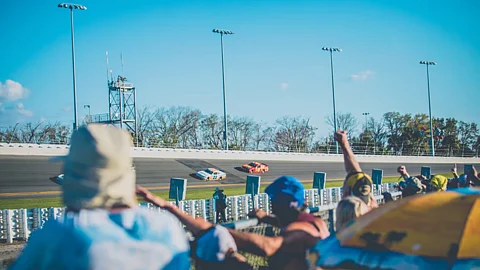

Whether it’s NASCAR, Indycar or Formula 1, there are a lot of factors that go into winning a race or a championship. It’s not just a case of driving as fast as you can for the length of an entire race, there are strategies that need to be considered, with the pros and cons of different choices weighed up against each other.
For seasoned petrol heads, this makes motor racing much more exciting as it creates more jeopardy within a race. However, for those that are new to the sport, it can be a little tricky to keep track of everything.
Of course, strategy is not exclusive to motorsport. In poker, players need to consider numerous factors before they fold, such as odds, stack sizes, and who their opponent is. Folding too frequently is a common problem among poker players and can often lead to them missing out on valuable chips. Similarly, in basketball, players have to weigh up the chances of scoring a basket from behind the three-point line versus one closer that nets them fewer points.
In motorsport, different rules in each category can influence strategy decisions, but there are some general concepts that apply across the board. For anyone looking to place bets on races or entire championships, it is important to keep these in mind as they can have a big influence on the outcome of events.
The late Ayrton Senna is widely quoted as saying “if you don’t go for a gap, you are no longer a racing driver”, meaning drivers should always be looking for overtaking opportunities. While this meant Senna was involved in some of the most spectacular racing in the history of Formula 1, it also meant that he was involved in some major accidents when those “gaps” were a little smaller than he had perceived.
One of his biggest rivals, Alain Prost, took a very different approach. He was often referred to as “The Professor” because he was always calculating and never took unnecessary risks.
This second approach is one that is very common among racing drivers today. While overtaking an opponent is what every driver wants to do, they need to consider that finishing second and getting a large quantity of points is better than risking an overtake at a crucial moment in a championship, crashing, and taking home nothing instead.
In the 2021 F1 season, we saw this between Lewis Hamilton and Max Verstappen. Hamilton was generally less aggressive than his Dutch rival, preferring to play the long game. He would have won the championship with this approach, had it not been for a last minute safety car in the final race.
Some drivers also won’t defend against overtaking attempts from their rivals if they don’t consider them to be “who they’re racing”. For example, a faster car that is out of place on track due to a poor qualifying or an extra pit stop, like in the case of Chase Elliott at Phoenix Raceway in 2020. It may seem counter-intuitive, but racing with a rival costs time as you have to take sub-optimal lines to prevent other cars from coming through. Losing time against a similarly-paced rival you are actually racing could result in lost points.
Pit stops are an important part of motor racing and are often a requirement for every driver. They allow a car’s tires to be replaced with fresher (and faster) ones and top up the fuel tank so the car can get to the end of the race.
But while you might get some fresher rubber that’ll help you go faster, a pit stop costs time. While you trundle down the pit lane at a slow speed and then sit stationary while the pit crew gets to work, your rivals are out lapping at full racing speed.
Therefore, teams spend a lot of time and resources looking for the optimum balance between making stops and staying out. They don’t just examine how many tire changes to make, but also the best moment to do it.
This may also change during the race as events on track and what other teams do can influence the timing. In NASCAR, we recently saw Denny Hamlin use a clever pit strategy so that we would be faster at the end of the race, giving him the chance to chase down William Byron with a few laps to spare.